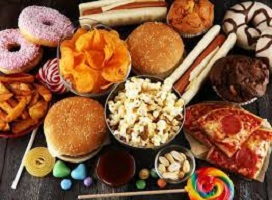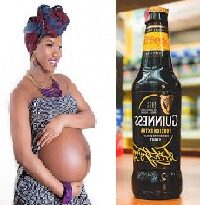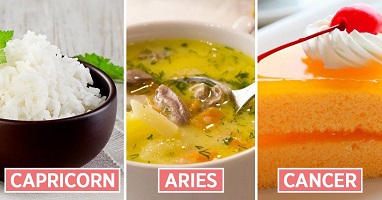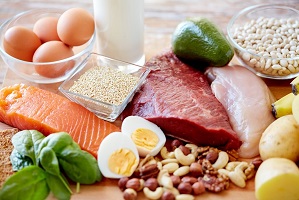10 Foods to Avoid with BV ~ Best & Worst for Wellness
10 Foods to Avoid with BV ~ Best & Worst for Wellness
Special care for down below. Natural ways to relieve the discomfort of bacterial vaginosis (bv) and thrush.
Bacterial vaginosis is a vaginal infection caused by an imbalance of good and bad bacteria in the vagina. It causes itching, fishy odor, foul discharge, redness, and other symptoms.

Please be aware that bacterial vaginosis is not transmitted sexually.
Can diet have an impact on your vaginal health?
Because of its modest position, our most private part is more vulnerable to infection than the rest of our body.
The risks of bacterial growth are fairly significant due to the damp atmosphere or even tight underwear.
So, in this instance, isn’t it feasible that your diet will have an impact on the general health of your vagina?
What Effect Does Food Have on Vaginal Health?
To keep itself healthy, the vagina relies on natural fluids, beneficial microorganisms, and immunological defenses.
Thus, what you consume daily is critical to improving its natural surroundings. A well-balanced diet rich in probiotics, fermented foods, and beverages can help to prevent infections and improve vaginal health.
So, here’s how you should modify your diet to improve the health of your vagina.
10 foods to avoid with BV~ Foods You Should Avoid Eating
The first step in preserving your vaginal health is to understand which foods to avoid to avoid infections or extreme situations.
Because your diet has a direct impact on your menstrual cycle and, by extension, the vagina, avoiding items that can cause these infections would be beneficial.
Here is a list of foods that may be harmful to your vaginal health:
- Candy: Sugar or candy encourages vaginal yeast growth because the vagina generates sugar-containing secretions, allowing yeast to collect in this wet area. Your vagina, by releasing these secretions, can also change the pH level, allowing additional infections and nasty bacteria to proliferate.
- Alcohol: Alcohol, like the rest of your body and skin, can dry your vagina, especially if you drink too much without taking water breaks in between. This might cause problems with self-lubrication before intercourse, as well as during it. It may also aggravate menstruation pains and induce bloating.
- Coffee: We can rarely survive without coffee, but our vagina does not. The caffeine in the beverage may impair our body’s ability to fight off yeast infections. It can also give your vagina a foul odor.
- Fried Food: Fried foods are never good for our bodies, and the same is true for our vaginas. Consuming too much-fried food might disrupt the balance of beneficial microorganisms. They are also linked to an increased risk of infection, such as bacterial vaginosis, which can cause odor and discomfort.
- Refined Carbohydrates: Refined carbs, such as bread, can produce a fast jump in your blood sugar level. This, in turn, may put your body at risk of getting bacterial vaginosis or a yeast infection.
- Cheese: We all know that dairy is healthy for our bodies and our vaginal health, right? Not all of them, to be sure. Cheese, unlike yogurt, can be pungent, imparting an unpleasant stench to your urine and vagina. Most importantly, it can upset your vaginal bacteria, increasing your chances of acquiring a yeast infection.
- Asparagus: Asparagus, like cheese, can make your pee stink. It also has a significant risk of causing vaginal infections such as yeast infections, UTIs, or even bacterial vaginosis.
- Processed Food: Processed meals suppress your immune system, allowing hazardous microorganisms to take control. This can cause a variety of issues, including bacterial vaginosis, yeast infections, dryness, pain during sex, and urinary tract infections.
- Meat Containing Artificial Hormones: Some meat and even dairy products contain xenoestrogen, an artificial hormone that mimics estrogen. These hormones can delay the formation of the mucosal lining of the vagina, leaving you vulnerable to infection.
- Artificial Sweeteners: Artificially sweetened beverages weaken the gut barrier, increasing the likelihood of a leaky gut.
A leaky gut produces inflammatory cytokines, which can cause anxiety and sadness. Low libido caused by mood issues like these might have an indirect impact on vaginal health.
Foods to try for healing
- Lactobacillus acidophilus, a “friendly” form of bacteria found in live yogurt, can inhibit yeast growth by “crowding” them out. Only use plain, unsweetened live yogurt to cure a yeast infection.
- Increase your daily consumption of filtered water to 2-3 liters.
- Antiparasitic culinary herbs like sage, papaya, and pineapple help balance healthy and bad bacteria in your digestive system.
- Garlic and caprylic acid are antifungal, which aids in bacterial equilibrium.
- Coconut oil contains antifungal qualities that can fight the fungi that cause yeast infections.
- An alkalizing diet, which includes vegetables, green juices, protein powders, and whey protein, can be useful.
- Both apple cider vinegar and white vinegar contain unique components that can prevent yeast infections and eliminate the fungus that causes them.
Lifestyle changes to fight BV and thrush
- Hydrate, hydrate, and hydrate some more! The most important thing you can do to maintain your vaginal area healthy is to drink plenty of water.
- If your doctor recommends antibiotics for BV, make sure you take my For Women probiotics three times a day to recolonize your gut with “friendly” bacteria to avoid complications after treatment.
- Try to avoid taking antibiotics regularly and only use them when required. Antibiotics disrupt the natural balance of microorganisms in the digestive system and vaginal tract, allowing pathogenic bacteria and yeasts to establish a stronghold.
- Wear cotton underwear, wipe yourself from front to back after using the restroom, and only use fragrance-free personal hygiene products, soaps, and shower gels. All of these steps will assist to prevent vaginal irritation, which can lead to BV or thrush.
- If you have diabetes, keep your blood sugar under control.
What is the best food to eat to get rid of BV?
Probiotics can help with BV by introducing ‘good’ bacteria.
They may also aid in the prevention of recurring BV infections.
Lactobacillus strains, in particular, can aid in the recovery from BV and the reduction of overall symptoms. So go ahead and eat that yogurt or kefir.
How do I permanently get rid of BV?
Bacterial vaginosis is a frequent infection that cannot be entirely eradicated.
However, by practicing excellent hygiene and caring for your overall health, you may be able to reduce your risk of having BV.
If you are suffering any of the symptoms of BV, consult your healthcare physician.
What fruits are good for BV?
Apples may aid in vaginal lubrication, probiotic-rich meals may aid in the regulation of vaginal microbes, and high-fiber foods may aid in the prevention of BV.
The general quality of your diet can also have an impact on vaginal health.

Is it OK to eat bread if I have BV?
Refined carbohydrates such as white bread or rice, elevate blood sugar and put you at risk for BV or yeast infections.
Fried foods, as well as high-fat and processed foods, have been linked to an increased risk of BV.
Is watermelon healthy for BV?
During a bout of bacterial vaginosis, avoid sugar, fried meals, dairy (excluding yogurt), high-fat foods, caffeine, and alcohol.
Consume fresh fruits and vegetables such as watermelon, cucumber, and radish to assist in minimizing discharge. Go organic when buying fruits and vegetables!
Can I consume sugar if I have BV?
Sugar: Because sugar is never your vagina’s closest friend, you must exercise caution when consuming it.
Sugar consumption is directly associated with bacterial vaginosis.
Patients in one trial utilized a vaginal lotion enriched with the extract of calendula officinalis, sometimes known as pot marigold.
Participants in the trial found it to be as beneficial as metronidazole in treating BV, but further research is needed before doctors may recommend it.
Can I eat bread while being treated for yeast infection?
Furthermore, when you eat bread, the solid yeast lingers in your intestinal tract for an unknown period, which can aggravate the disease.
To reduce the risk of infection, avoid highly processed carbs such as pasta and tortillas.
Is bread beneficial for yeast infections?
We all know that eating most varieties of bread causes your body to produce extra sugar as the bread is broken down into carbohydrates and simple sugars.
Those who have a yeast infection usually avoid sweets, alcohol, grains, bread, peanuts, dairy, and other yeast-containing foods.
Can a yeast infection be triggered by bread?
A study published in the journal PLOS One discovered that persons who ate a lot of simple carbs were more likely to have yeast infections.
To begin, white bread, pasta, and other carbohydrates quickly convert to sugar in your body.
However, yeast can also be found in wine, bread, and certain cheeses.
Is bread a breeding ground for bacteria?
Low-risk foods include the following: Fruits and vegetables that are in season. Bread. The majority of baked foods.
Is rice a high-risk food?
Cook rice safely
We consider rice to be a high-risk food. It has the potential to promote the growth of microorganisms that cause food poisoning. To serve safe rice, follow these procedures.
Getting Rid of BV Forever
What can help prevent BV from recurring?
- Maintain proper vaginal hygiene. To keep your vaginal area clean, you don’t need to do much.
- Wear breathable underwear
- Ask about boric acid suppositories
- Make use of condoms.
- Maintain a normal vaginal pH.
- Take a probiotic.
- Find healthy ways to relax.
Drinks to improve vaginal health
Eating well, ladies can improve everything, including your vaginal health.
- Yogurt. Yogurt contains the lactobacillus bacteria, which is also naturally present in your gut, urinary tract, and vagina.
- Cranberry juice.
- Pineapple.
- Cinnamon.
- Apple.
- Ginger Tea.
- Lemon.
- Celery.
Foods to Avoid with BV ~ Foods that throw off your pH balance
- Sugar-rich foods. As previously stated, foods high in sugar can significantly alter your pH level.
- Alcoholic beverages. There is a reason why folks in recovery from alcoholism prefer sugary meals – the body processes them similarly.
- Processed foods.
- Meat or dairy products with added hormones.
Foods to avoid with BV ~ How can I reduce my BV risk?
- Firstly, stay away from douching. It alters the natural balance of germs in your vagina
- Secondly, avoid vaginal contact with anything that has come into contact with your anus.
- Then, limit the number of sex partners you have. • Use latex condoms or dental dams.
- Finally, wear cotton underwear or cotton-lined underwear.
What is the best item to consume for BV ~ An alkaline diet for BV?
Apples may aid in vaginal lubrication, probiotic-rich meals may aid in the regulation of vaginal microbes, and high-fiber foods may aid in the prevention of BV.
The general quality of your diet can also have an impact on vaginal health.
Is BV caused by acidic or alkaline?
When there is a significant presence of Gardnerella bacteria and less lactobacillus bacteria, PH levels become less acidic, resulting in BV.
A typical vaginal PH is around 4 (acidic), but a BV vaginal PH is 7 or higher (less acidic).
Best vaginal health vitamins
Vitamins A, B, E, and D are very necessary for vaginal health.
Vaginal health foods
What Are the Best Foods to Eat for Vaginal Health? · Cranberry can aid in the treatment of urinary tract infections (UTIs). Yummy sweet potatoes
Foods High in Probiotics; Sauerkraut, Kimchi, Pickles, Miso (soy paste), Tempeh (soy product), and Kombucha are all examples of live cultures in yogurt.

Is yogurt beneficial to vaginal health?
Yogurt, which includes Lactobacillus bacteria, may be an effective treatment.
This beneficial bacterium can dwell in the gut, urinary tract, and vagina without irritation.
Lastly, using yogurt with beneficial bacteria may help to reestablish a healthy balance of yeast and bacteria in the vagina.


